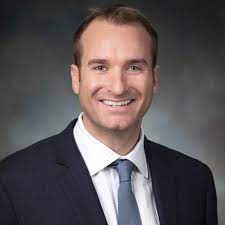Pediatric anesthesiology is a specialized field of medicine dedicated to providing safe and compassionate care to children undergoing surgical and medical procedures. Dr Brian Blick Elk city, a highly regarded specialist from Elk City, Oklahoma, underscores the importance of tailored anesthesia care for pediatric patients. In this article, we will explore the unique challenges and essential principles of pediatric anesthesiology, highlighting the critical role it plays in ensuring the comfort and well-being of young patients.
Understanding Pediatric Anesthesiology: A Specialized Approach
Pediatric anesthesiology focuses on delivering anesthesia and pain management services to infants, children, and adolescents. Dr Brian Blick MD emphasizes that children are not small adults and require specialized care due to their distinct physiological and psychological needs.
Key Aspects of Pediatric Anesthesiology:
Age-Appropriate Care: Anesthesiologists who specialize in pediatrics are trained to provide age-appropriate care. This includes selecting the right anesthesia agents, equipment, and monitoring techniques tailored to the child’s developmental stage.
Child-Centered Approach: Pediatric anesthesiologists work closely with children and their parents or guardians to alleviate anxiety and fear. Establishing trust and rapport with young patients is crucial for a positive experience.
Preoperative Assessment: Thorough preoperative assessments are conducted to evaluate the child’s overall health, medical history, and specific anesthesia needs. This assessment ensures the safest and most effective anesthesia plan.
Pain Management: Pain management strategies are carefully tailored to each child’s unique requirements. Pediatric anesthesiologists employ various techniques to minimize discomfort and promote a smooth recovery.
Unique Challenges in Pediatric Anesthesiology
Pediatric patients present unique challenges and considerations for anesthesiologists:
Dosing Precision: Calculating and administering precise anesthesia dosages for children based on their weight and age is critical to prevent over- or under-dosing.
Airway Management: Children have smaller airways, making airway management during anesthesia induction and maintenance more delicate.
Emotional Impact: Surgery and anesthesia can be emotionally distressing for children and their families. Pediatric anesthesiologists are skilled in providing emotional support and addressing the psychological aspects of care.
Postoperative Pain: Effective pain management is crucial in pediatric cases. Tailored pain relief plans are developed to ensure comfort while minimizing potential side effects.
Ensuring Safety and Comfort for Young Patients
Pediatric anesthesiologists prioritize the safety and well-being of young patients. They collaborate closely with surgical teams, nurses, and other healthcare professionals to provide comprehensive care. Dr. Brian Blick MD highlights the importance of open communication with parents or guardians, ensuring they are informed and involved in decision-making.
In conclusion, pediatric anesthesiology is a specialized field that demands expertise, empathy, and a child-centered approach. Dr. Brian Blick’s insights underscore the critical role of pediatric anesthesiologists in ensuring the safety, comfort, and positive outcomes of young patients undergoing surgical and medical procedures. Their commitment to tailoring care to the unique needs of children makes a significant difference in the healthcare experience for both patients and their families.



